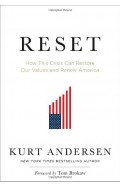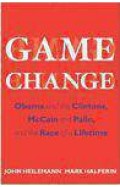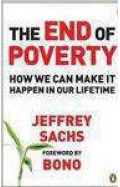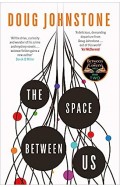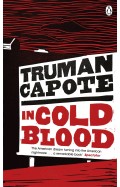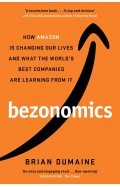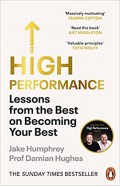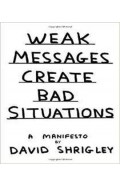A Brief History of Equality
By: Thomas Piketty
-
Rs 7,815.75
- Rs 9,195.00
- 15%
You save Rs 1,379.25.
Due to constant currency fluctuation, prices are subject to change with or without notice.
It’s easy to be pessimistic about inequality. We know it has increased dramatically in many parts of the world over the past two generations. No one has done more to reveal the problem than Thomas Piketty. Now, in this surprising and powerful new work, Piketty reminds us that the grand sweep of history gives us reasons to be optimistic. Over the centuries, he shows, we have been moving toward greater equality.
Piketty guides us with elegance and concision through the great movements that have made the modern world for better and worse: the growth of capitalism, revolutions, imperialism, slavery, wars, and the building of the welfare state. It’s a history of violence and social struggle, punctuated by regression and disaster. But through it all, Piketty shows, human societies have moved fitfully toward a more just distribution of income and assets, a reduction of racial and gender inequalities, and greater access to health care, education, and the rights of citizenship. Our rough march forward is political and ideological, an endless fight against injustice. To keep moving, Piketty argues, we need to learn and commit to what works, to institutional, legal, social, fiscal, and educational systems that can make equality a lasting reality. At the same time, we need to resist historical amnesia and the temptations of cultural separatism and intellectual compartmentalization. At stake is the quality of life for billions of people. We know we can do better, Piketty concludes. The past shows us how. The future is up to us.
It’s easy to be pessimistic about inequality. We know it has increased dramatically in many parts of the world over the past two generations. No one has done more to reveal the problem than Thomas Piketty. Now, in this surprising and powerful new work, Piketty reminds us that the grand sweep of history gives us reasons to be optimistic. Over the centuries, he shows, we have been moving toward greater equality.
Piketty guides us with elegance and concision through the great movements that have made the modern world for better and worse: the growth of capitalism, revolutions, imperialism, slavery, wars, and the building of the welfare state. It’s a history of violence and social struggle, punctuated by regression and disaster. But through it all, Piketty shows, human societies have moved fitfully toward a more just distribution of income and assets, a reduction of racial and gender inequalities, and greater access to health care, education, and the rights of citizenship. Our rough march forward is political and ideological, an endless fight against injustice. To keep moving, Piketty argues, we need to learn and commit to what works, to institutional, legal, social, fiscal, and educational systems that can make equality a lasting reality. At the same time, we need to resist historical amnesia and the temptations of cultural separatism and intellectual compartmentalization. At stake is the quality of life for billions of people. We know we can do better, Piketty concludes. The past shows us how. The future is up to us.
Time for Socialism: Dispatches from a World on Fire, 2016-2021
By: Thomas Piketty
Rs 4,925.75 Rs 5,795.00 Ex Tax :Rs 4,925.75
Zubin Mehta: A Musical Journey (An Authorized Biography)
By: VOID - Bakhtiar K. Dadabhoy
Rs 892.50 Rs 1,050.00 Ex Tax :Rs 892.50
In Praise of Disobedience: The Soul of Man Under Socialism and Other Writings
By: Oscar Wilde
Rs 3,595.50 Rs 3,995.00 Ex Tax :Rs 3,595.50
The Invention of the Jewish People - Paperback
By: Shlomo Sand
Rs 3,775.50 Rs 4,195.00 Ex Tax :Rs 3,775.50
The Mosaic of Islam A Conversation with Perry Anderson
By: suleiman mourad
Rs 1,317.50 Rs 1,550.00 Ex Tax :Rs 1,317.50
The Origins of Political Order From Prehuman Times to the French RevolutioN
By: Francis Fukuyama
Rs 4,045.50 Rs 4,495.00 Ex Tax :Rs 4,045.50
Reset: How This Crisis Can Restore Our Values and Renew America
By: Kurt Andersen
Rs 450.00 Rs 500.00 Ex Tax :Rs 450.00
How To Win A Cosmic War God Globalization And The End Of War
By: Reza Aslan
Rs 625.50 Rs 695.00 Ex Tax :Rs 625.50
Game Change Obama And The Clintons McCain And Palin And The Race Of A Lifetime
By: John Heilemann
Rs 715.50 Rs 795.00 Ex Tax :Rs 715.50
Made to Stick: Why Some Ideas Take Hold and Others Come Unstuck
By: Chip Heath & Dan Heath
Rs 2,695.50 Rs 2,995.00 Ex Tax :Rs 2,695.50
In Praise of Disobedience: The Soul of Man Under Socialism and Other Writings
By: Oscar Wilde
Rs 3,595.50 Rs 3,995.00 Ex Tax :Rs 3,595.50
The Invention of the Jewish People - Paperback
By: Shlomo Sand
Rs 3,775.50 Rs 4,195.00 Ex Tax :Rs 3,775.50
The Mosaic of Islam A Conversation with Perry Anderson
By: suleiman mourad
Rs 1,317.50 Rs 1,550.00 Ex Tax :Rs 1,317.50
Maritime Security: Challenges & Responses in a Changing World
By: Vice Admiral Iftikhar Ahmad Rao
Rs 5,100.00 Rs 6,000.00 Ex Tax :Rs 5,100.00
Princeton Review TOEFL iBT Prep with Audio/Listening Tracks, 2022: Practice Test + Audio + Strategies & Review (College Test Preparation)
By: The Princeton Review
Rs 2,697.50 Rs 5,395.00 Ex Tax :Rs 2,697.50
A Sense of Wonder: The World's Best Writers on the Sacred, the Profane, and the Ordinary
By: Brian Doyle
Rs 647.50 Rs 1,295.00 Ex Tax :Rs 647.50
Charlie Chilli and the safari song The Froobles
By: Ella Davies
Rs 250.75 Rs 295.00 Ex Tax :Rs 250.75
Indispensable Reading - 1001 Books From The Arabian Nights to Zola
By: Wm Roger Louis
Rs 3,650.75 Rs 4,295.00 Ex Tax :Rs 3,650.75
Healing You - A Journal for Reflection
By: Jennie Liljefors
Rs 2,035.75 Rs 2,395.00 Ex Tax :Rs 2,035.75
In Cold Blood: A True Account of a Multiple Murder and its Consequences (Penguin Essentials)
By: Truman Capote
Rs 2,245.50 Rs 2,495.00 Ex Tax :Rs 2,245.50
Bezonomics - How Amazon Is Changing Our Lives, and What the World's Best Companies Are Learning from It
By: Brian Dumaine
Rs 2,375.75 Rs 2,795.00 Ex Tax :Rs 2,375.75
High Performance - Lessons from the Best on Becoming Your Best
By: Jake Humphrey
Rs 2,515.50 Rs 2,795.00 Ex Tax :Rs 2,515.50
Redhanded : An Exploration of Criminals, Cannibals, Cults, and What Makes a Killer Tick
By: Suruthi Bala
Rs 1,747.50 Rs 3,495.00 Ex Tax :Rs 1,747.50
Don Quixote (Wordsworth Classics)
By: Miguel De Cervantes Saavedra
Rs 1,615.50 Rs 1,795.00 Ex Tax :Rs 1,615.50
Rivals - How the Power Struggle Between China, India and Japan Will Shape Our Next Decade
By: Bill Emmott
Rs 1,270.75 Rs 1,495.00 Ex Tax :Rs 1,270.75
Kipling Everymans Library POCKET POETS
By: Rudyard Kipling
Rs 2,695.50 Rs 2,995.00 Ex Tax :Rs 2,695.50
Weak Messages Create Bad Situations A Manifesto
By: David Shrigley
Rs 5,520.75 Rs 6,495.00 Ex Tax :Rs 5,520.75
Clear Thinking - Turning Ordinary Moments Into Extraordinary Results
By: Shane Parrish
Rs 3,595.50 Rs 3,995.00 Ex Tax :Rs 3,595.50
The Essential Kafka : The Castle; The Trial; Metamorphosis and Other Stories
By: Franz Kafka
Rs 1,615.50 Rs 1,795.00 Ex Tax :Rs 1,615.50
Healing the Wounds of the Heart: 15 Obstacles to Forgiveness and How to Overcome Them
By: Olivier Clerc
Rs 3,820.75 Rs 4,495.00 Ex Tax :Rs 3,820.75
Challenger: A True Story of Heroism and Disaster on the Edge of Space
By: Adam Higginbotham
Rs 4,795.00 Ex Tax :Rs 4,795.00
The Digital Silk Road: China's Quest to Wire the World and Win the Future
By: Jonathan E Hillman
Rs 3,505.50 Rs 3,895.00 Ex Tax :Rs 3,505.50
Harry Potter And The Chamber Of Secrets
By: J. K. Rowling
Rs 1,950.75 Rs 2,295.00 Ex Tax :Rs 1,950.75
They Were Here Before Us - Stories from the First Million Years
By: Eyal Halfon
Rs 5,665.50 Rs 6,295.00 Ex Tax :Rs 5,665.50
Marvel's Spider-Man 1000 Dot-to-Dot Book Twenty Comic Characters to Complete Yourself
By: Emma Lewis
Rs 845.75 Rs 995.00 Ex Tax :Rs 845.75
Zubin Mehta: A Musical Journey (An Authorized Biography)
By: VOID - Bakhtiar K. Dadabhoy
Rs 892.50 Rs 1,050.00 Ex Tax :Rs 892.50
Time for Socialism: Dispatches from a World on Fire, 2016-2021
By: Thomas Piketty
Rs 4,925.75 Rs 5,795.00 Ex Tax :Rs 4,925.75
In Praise of Disobedience: The Soul of Man Under Socialism and Other Writings
By: Oscar Wilde
Rs 3,595.50 Rs 3,995.00 Ex Tax :Rs 3,595.50
The Invention of the Jewish People - Paperback
By: Shlomo Sand
Rs 3,775.50 Rs 4,195.00 Ex Tax :Rs 3,775.50
The Mosaic of Islam A Conversation with Perry Anderson
By: suleiman mourad
Rs 1,317.50 Rs 1,550.00 Ex Tax :Rs 1,317.50












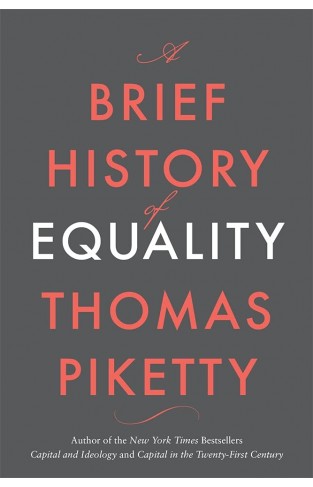


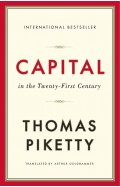



-120x187.jpg?q6)





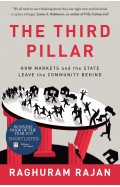




-120x187.jpg?q6)
